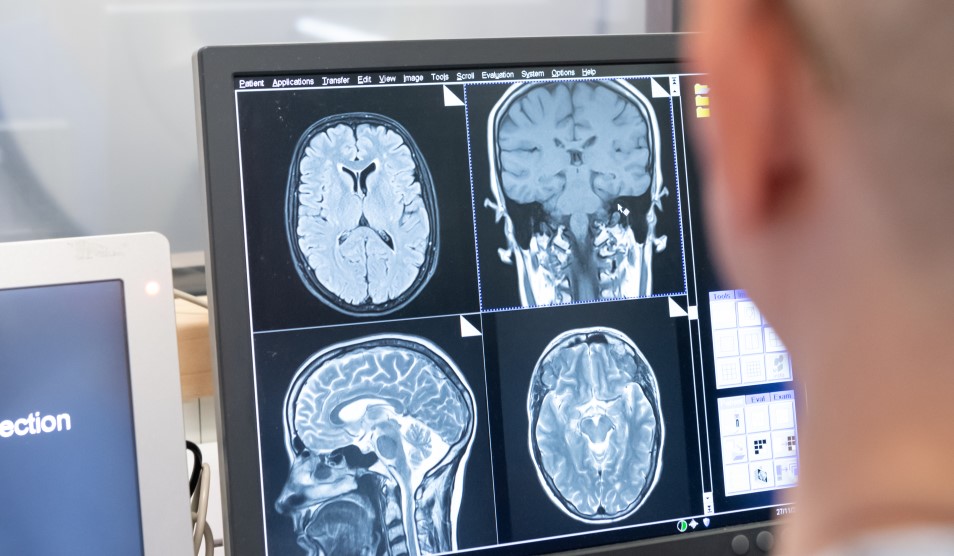Neuro-otology
Contact
- Outpatients appointments
- 020 3313 5000
Visitor Information
Translation help:
To translate this page into your preferred language, click the Google Translate icon in the top-right menu and select your desired language.
Our neuro-otology service is a centre of national excellence for patients with dizzy, balance and eye movement disorders and we receive referrals from around the UK.
The service is run by two consultants, Professor Adolfo Bronstein MD PhD FRCP (Imperial College London) and Dr Barry Seemungal PhD FRCP (Imperial College Healthcare NHS Trust), who both regularly lecture on balance and dizziness nationally and internationally.
They have provided input to NICE guidelines on vertigo and NHS England initiatives.
Conditions and treatments
Our specialist neuro-otology clinics provide clinical assessment, laboratory testing, final diagnosis and treatment plans in one visit. For patients referred with refractory and chronic dizziness following head injury (at six to 18 months post-injury), we are proud to note that we achieve 80 per cent symptom-free rates within six months.
Critically, dizziness is an independent risk for unemployment post-head injury (at six months, 75 per cent of non-dizzy head injury patients are back at work versus 33 per cent with dizziness).
We work closely with our patients to develop effective treatment plans for a variety of dizzy, balance and eye movement disorders, including:
- Benign paroxysmal positional vertigo (BPPV)
- Chronic dizziness and gait disorders
- Visually-induced dizziness
- Meniere’s disease
- Vestibular migraine
- Vestibular neuritis
- Central vestibular disorders
- Nystagmus
Clinics
Neuro-otology clinics at Charing Cross Hospital
Address
Charing Cross Hospital
Fulham Palace Road
London W6 8RF
Hours
Monday mornings, main outpatients department, first floor, Charing Cross Hospital
Monday afternoons, ENT department, first floor, Charing Cross Hospital
Contact information
Phone: 020 3313 5584
Meet the team
Honorary consultant neurologist
Professor Adolfo Bronstein MD, PhD, FAAN, FRCP
Consultant neurologist
Dr Barry M. Seemungal BSc PhD FRCP
Clinical research fellow
Dr Hena Ahmad MRCP
Senior registrar
Dr Lorraine Everett MRCP
Clinical vestibular scientist and post-doctoral research fellow
Dr Qadeer Arshad B.Optom, MSc, PhD
Post-doctoral research fellow and audio-vestibular scientist
Dr Mitesh Patel, PhD
Research physiotherapist in neuro-otology
Miss Sofia Nousi, MScPT, MCSP
Hearing and balance therapist
Jane McCall
Secretary
Michele Stenning, Charing Cross Hospital
Academic and private patient secretary
Miss Lorna Stevenson, Charing Cross Hospital
Patient information
Before your appointment
You are welcome to bring a relative, close friend or carer with you to your appointment, and you are welcome to ask for a chaperone. Please bring a list of any medication you are currently taking or have taken in the past, as well as details of any past treatments or therapies you have had for your condition.
During your appointment
Please note that we are a teaching hospital, so medical students may be present for some appointments. If you do not wish to have them in the room please let the nurse or doctor know and the students will be asked to step outside.
If this is your first appointment to our one-stop clinic, please expect your visit to take up to four hours. During your appointment, you will have a clinical assessment and an ear, nose and throat test. Your doctor or nurse may also help you try some treatment options.
After your appointment
After your appointment, a clinical report and a summary of all test results will included in a letter that will be sent to your GP and to your referring consultant. You will also receive a copy of this letter, and you will be contacted about any follow-up appointments that may be required.
Refer to this service
GP referrals
Please use NHS e-Referrals to refer a patient to our neuro-otology service.
Secondary care
Secondary care referrals may to be sent to the neurology department and clearly addressed to the neuro-otology clinic.
Neuro-otology clinic
Neurology department
Charing Cross Hospital
Fulham Palace Road
London W6 8RF
Clinical trials and research
We are an academic department which means that we are continuously involved in deepening our knowledge of clinical disorders that cause balance complaints, dizziness and eye movement problems.
We therefore have ongoing research studies and if you are interested in participating please ask about our ongoing studies. Please see our areas of research here.

